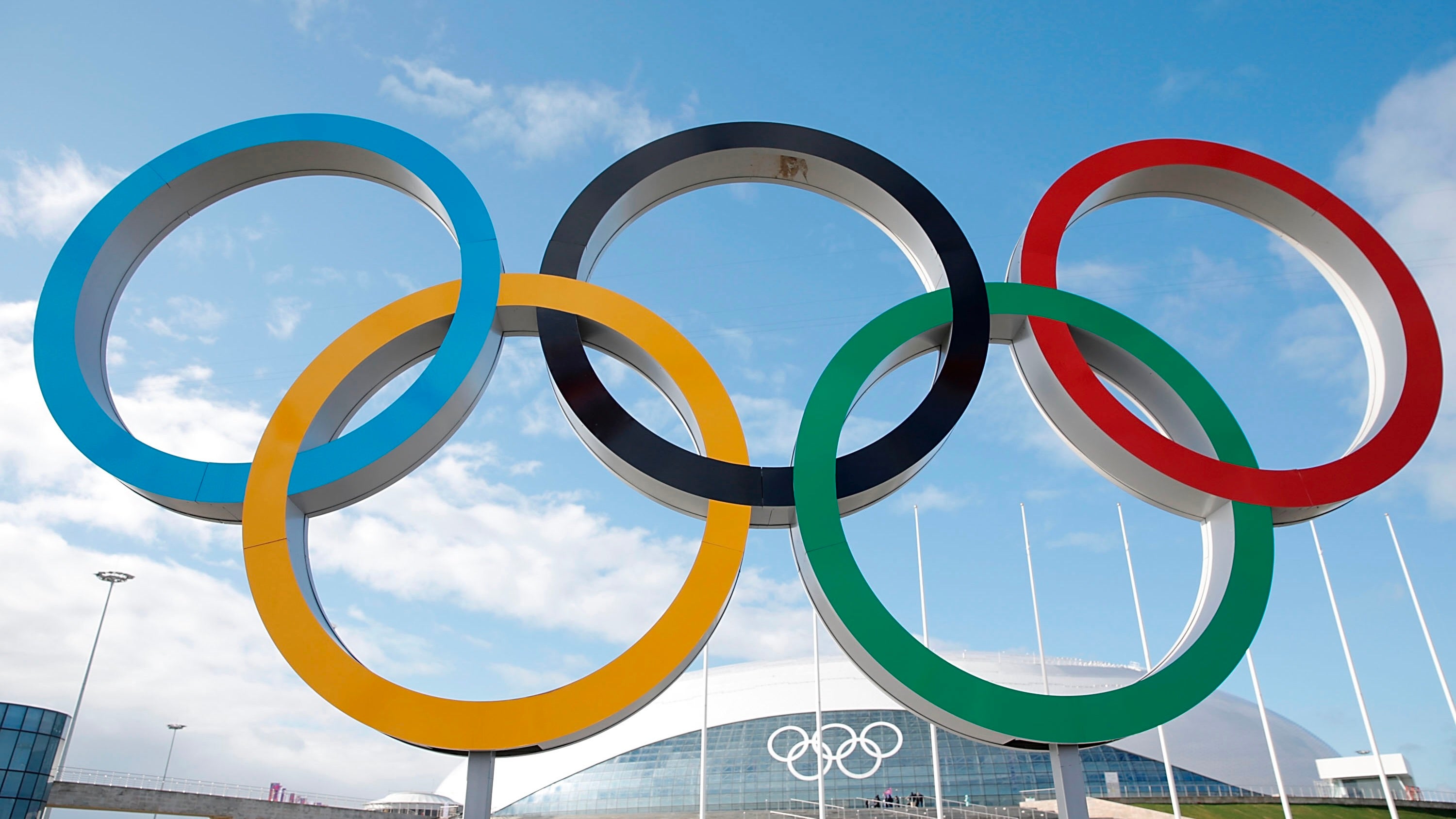
The Olympic Games is one of the most celebrated and anticipated events in the world. Every four years, athletes from around the globe gather to compete in various sports and showcase their skills, determination, and talent. The Olympic Games bring nations together, promoting unity, friendship, and healthy competition. But how much do we really know about the history and intricacies of this prestigious event? In this article, we will delve into 16 fascinating facts about the Olympic Games that will not only deepen your understanding but also leave you in awe of its remarkable legacy. From its ancient origins to its modern-day incarnation, join us as we explore the captivating world of the Olympic Games.
Key Takeaways:
- The Olympic Games have a rich history dating back to ancient Greece, and they continue to inspire athletes and unite nations in the pursuit of athletic excellence and camaraderie.
- The Olympic Games promote peace, diplomacy, and gender equality in sports, and their impact has led to the creation of the Paralympic Games, showcasing the talents of athletes with disabilities.
The Olympic Games date back to ancient Greece.
The Olympic Games have a rich history that dates back to ancient Greece, where they were held in honor of the Greek god Zeus. The first recorded Olympic Games took place in 776 BC in Olympia, Greece.
They were revived in 1896.
After more than a millennium of absence, the Olympic Games were revived in 1896 in Athens, Greece. The modern Olympic Games were founded by Pierre de Coubertin, a French educator, and the International Olympic Committee.
Over 200 nations participate in the Olympic Games.
The Olympic Games bring together athletes from around the world, with over 200 nations participating in the event. It is one of the largest and most diverse multinational sporting events.
The Olympic torch is lit in Olympia, Greece.
A symbolic tradition, the Olympic torch is lit in Olympia, Greece, using a parabolic mirror to focus sunlight. The flame is then carried by relay to the host city of the Olympic Games.
The first Olympic mascot was introduced in 1972.
In 1972, the Olympic Games in Munich introduced the first official Olympic mascot. Since then, mascots have become an integral part of the Olympic Games, representing the host nation and adding a touch of fun to the event.
The Olympic rings symbolize unity.
The famous Olympic rings represent the unity of the five continents: Africa, America, Asia, Europe, and Oceania. The rings are interlocked to symbolize cooperation and friendship among nations.
The first recorded gold medal was awarded in 1904.
In the 1904 Olympic Games in St. Louis, USA, the first gold medal was officially awarded to an athlete. Prior to that, winners received silver medals and laurel wreaths.
Women were first allowed to compete in 1900.
The 1900 Olympic Games in Paris marked the first year women were allowed to compete. The inclusion of women in the games was a significant step towards gender equality in sports.
The Olympic Village accommodates athletes.
During the Olympic Games, athletes from different nations reside in the Olympic Village, which provides housing, dining, and recreational facilities. The village serves as a hub for camaraderie and cultural exchange.
The Olympic motto is “Faster, Higher, Stronger.”
The Olympic motto, coined by Pierre de Coubertin, is “Citius, Altius, Fortius,” which translates to “Faster, Higher, Stronger” in Latin. It represents the pursuit of athletic excellence and personal growth.
The marathon was inspired by a Greek soldier.
The marathon race, a grueling 26.2-mile event, was inspired by the legend of a Greek soldier who ran from the battlefield of Marathon to Athens to deliver the news of victory. This heroic act is commemorated in the modern Olympic Games.
Gymnastics and swimming are among the oldest Olympic sports.
Gymnastics and swimming have a long history in the Olympic Games. Gymnastics dates back to ancient Greece, while swimming has been part of the modern Olympics since its inception.
The Olympic Games have been canceled during times of war.
Throughout history, the Olympic Games have been canceled on several occasions due to ongoing conflicts. The World Wars in particular led to the cancellation of several editions of the games.
The Olympic torch relay was first introduced in 1936.
The tradition of the Olympic torch relay, where the Olympic flame is carried from Olympia to the host city, was first introduced in the 1936 Berlin Olympics. This symbolic relay has become a cherished tradition of the Olympic Games.
The Olympic Games have inspired the Paralympic Games.
The success and spirit of the Olympic Games led to the creation of the Paralympic Games. The Paralympics provide a platform for athletes with disabilities to showcase their talents and compete at the highest level.
The Olympic Games promote peace and diplomacy.
The Olympic Games serve as a platform for promoting peace, understanding, and diplomacy among nations. It is a time when athletes come together in the spirit of friendly competition, transcending political and cultural boundaries.
Conclusion
The Olympic Games are a truly remarkable event that brings together athletes from all over the world. With a history spanning over a century, these games have evolved into the ultimate showcase of talent, dedication, and sportsmanship. From the ancient origins in Greece to the modern-day grandeur, the Olympic Games have captivated people’s hearts and minds.As we explored in this article, the Olympics are not just about sports but also about culture, diplomacy, and unity. The host cities invest a great deal of time, effort, and resources to ensure that the games are a success. Athletes commit themselves to years of training and sacrifice to represent their countries on the international stage.The Olympic Games transcend boundaries and inspire people to dream big, break records, and push the boundaries of human capabilities. They bring moments of triumph and heartbreak, showcase the best of humanity, and create lasting legacies.Whether it’s the breathtaking opening ceremony, the nail-biting competitions, or the indomitable spirit of the athletes, the Olympic Games continue to captivate the world. It’s a celebration of human achievements and serves as a reminder of what we can accomplish when we come together.So, let us eagerly await the next edition of the Olympic Games and embrace the excitement, passion, and camaraderie that this iconic event brings.
FAQs
1. When were the first Olympic Games held?
The first Olympic Games were held in ancient Greece in 776 BC. They were dedicated to the Greek gods and held in the city of Olympia.
2. How often are the Olympic Games held?
The Summer Olympic Games are held every four years, while the Winter Olympic Games are also held every four years, but they are offset by two years from the Summer Games.
3. How many countries participate in the Olympic Games?
The number of participating countries varies from edition to edition. In recent Summer Games, there have been around 200 countries participating, while the Winter Games have seen participation from around 100 countries.
4. Are there any age restrictions for athletes?
Yes, there are age restrictions for certain sports in the Olympic Games. The minimum age for participation is generally set at 16 years, but some sports may have higher age requirements.
5. How is the host city chosen for the Olympic Games?
The host city is chosen through a bidding process. National Olympic Committees submit bids, and the International Olympic Committee (IOC) evaluates the proposals before selecting the host city through a voting process.
6. What is the Olympic flame?
The Olympic flame is a symbol of the Olympic Games. It is lit in Olympia, Greece, and then carried by a relay of runners to the host city, where it ignites the cauldron during the opening ceremony.
7. Are there any banned substances or performance-enhancing drugs in the Olympic Games?
Yes, the Olympic Games have strict anti-doping policies to ensure fair competition. Athletes are tested for banned substances, and if found positive, they may face disqualification and consequences.
8. Can you watch the Olympic Games live?
Yes, the Olympic Games are broadcasted globally, allowing spectators to watch the events live on television or through online streaming platforms.
9. Are there any events exclusive to the Summer or Winter Games?
Yes, the Summer and Winter Games have their own specific events. The Summer Games include sports like athletics, swimming, and gymnastics, while the Winter Games feature sports like skiing, ice hockey, and figure skating.
10. Do all countries have the same number of athletes in the Olympic Games?
No, the number of athletes per country can vary depending on factors such as qualification standards and quotas set by the respective International Sports Federations.
From ancient origins to modern-day marvels, Olympic Games continue captivating audiences worldwide. Delve deeper into Youth Olympic Games designed for young athletes or explore Olympics trivia that'll amaze even seasoned fans. Fancy something different? Dive into mesmerizing world of synchronized swimming, where grace meets athleticism. Each article offers unique insights into Olympic spirit, so why not explore them all?
Was this page helpful?
Our commitment to delivering trustworthy and engaging content is at the heart of what we do. Each fact on our site is contributed by real users like you, bringing a wealth of diverse insights and information. To ensure the highest standards of accuracy and reliability, our dedicated editors meticulously review each submission. This process guarantees that the facts we share are not only fascinating but also credible. Trust in our commitment to quality and authenticity as you explore and learn with us.


